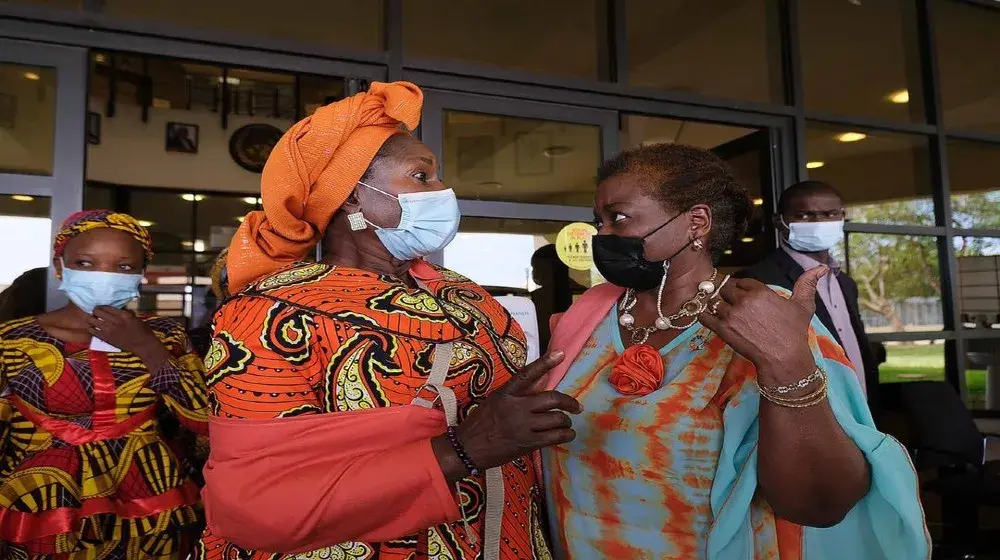UNFPA Executive Director virtual meeting with the Nigeria Country Office Staff
UNFPA Nigeria was excited to formally welcome Executive Director Natalia Kanem, accompanied by Rachel Snow, Chief of the population and development branch, and Regional Director, Argentina Matavel to Nigeria during an all-staff meeting held 25 November 2021, day 1 of the 16 days of Activism.
Staff from UNFPA Nigeria’s Borno, Kaduna, Calabar, Lagos state offices, and Abuja main office joined their principals in a virtual discussion recognizing Nigeria’s program priorities, achievements, challenges, and lessons learned, and to also brief the ED on plans regarding Nigeria’s upcoming 9th country program.
Dr. Kanem acknowledged UNFPA’s long-standing collaboration with the Federal Government of Nigeria and UNFPA’s support in identifying and defining Nigeria’s demographic profile. These relations, as reflected in Nigeria’s soon-to-end 8th country program, also included prioritizing improving the maternal and reproductive health for women and girls, especially in humanitarian settings, focusing on the needs of the most marginalized populations, contributing to gender equality and women empowerment and galvanizing national partnership to harness the demographic dividend.
The ED commended the efforts and work of UNFPA Nigeria thus far in implementing the current program and appreciated some key achievements including over an 18million new users of family planning services surpassing the original target of 13.6million in 2016, the decline in maternal mortality from 576 to 512 per 100,00 0 live births, in 2018, over 2 million women and girls reached with SRH and GBV services in the humanitarian context and the success of 10 states supporting implementing programs towards the actualization of the demographic dividend which has resulted in a roadmap for harnessing DD at the nationals level and across six states with two state-specific national DD profiles.
Some challenges were also noted by the Executive Director based in light of the COVID19 pandemic and dwindling donor support. She emphasized the importance of monitoring and following up on the lessons- learned from this period such as the effect of joint program monitoring to induce more active government ownership, advocacy is required across sectors to engender commitment and increase investment in young people, and secure easy engagement during government budget cycles is essential for effective resource mobilization.
Dr. Kanem also recognized that with the close of the 8th CP, its evaluation, and the development of the 9th CP being underway, particular attitudes and approaches are necessary to ensure the country is able to achieve the three transformative results.
“I want everyone to perfect their skills on ‘friend-raising’[…] Not to fundraise, but to ‘friend raise’ for an agenda.” Finding that a key approach in collaboration and partnership is ensuring that all stakeholders are cognizant, have seen themselves, and can fully understand needs from the perspective of the beneficiary - a skill that is demonstrated in the ability to speak encouraging words rather than undercutting or negative rhetoric.
The ED spoke in anticipation of the inevitable increase in reportage of sexual abuse, reiterating the importance of young women and girls being able to approach family members, pastors, or imams without having to bear the implications of stigma and instead of being comfortable enough to confide in anyone.
The role of data and development had also been reemphasized by Ms. Rachel Snow, stressing the need to leverage the existing opportunity for the census that has been revealed as a result of the COVID19 pandemic and bridge apparent gaps in data to optimize the post-pandemic context and double-down in harnessing the demographic dividend.
“Nigeria is now poised to accelerate the census in 2022. This is enormously important because you are such a large country that you especially need highly refined data at all levels to understand what is happening to the SDGs, who is left behind, where is our demographic dividend and how could we focus our resources.”


